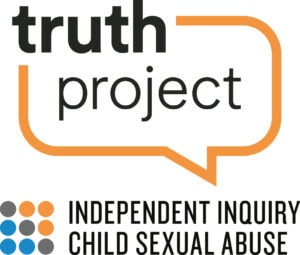On the 17 December 2020 IICSA released their ‘ Truth Project Thematic Report: Child sexual abuse in the context of schools.
Charles Derham of Remedy Law, was the lead solicitor instructed on behalf of a group of individuals in the Inquiry who suffered abuse whilst in a residential setting. Based on the conclusions in the report, it is self evident that there needs to be mandatory reporting to protect children in schools.
Key findings from the research
Sexual abuse occurred in a range of schools from state day schools to independent residential schools, and it happened to both girls and boys from a range of family backgrounds. While the analysis of Truth Project data is ongoing, this report highlights some specific features and characteristics from this research about child sexual abuse in the context of schools.
- The majority of perpetrators reported by participants sexually abused in the context of schools were male teachers or other educational staff. Perpetrators often manipulated and groomed children and young people, staff and parents in order to facilitate sexual abuse, and often had good reputations with staff and parents, or were seen as ‘cool’ by pupils. Some victims and survivors believed that they were in ‘relationships’ with the perpetrators, some of which extended for years after the participants had left school. These participants were conflicted for many years into adulthood about the ‘relationship’ and recognising it as sexual abuse. Some 6 percent of participants reported that they did not disclose the sexual abuse because they thought the perpetrator loved them.
- Fifteen percent of participants reported sexual abuse perpetrated by peers or older children, the second most frequently reported perpetrator type in the context of schools after teachers and educational staff.
- Sexual abuse perpetrated in residential schools was disproportionately higher in accounts from Truth Project participants compared to the proportion of these types of schools in England and Wales, and the percentage of children who attended them. A greater proportion of participants who were sexually abused in residential schools reported sexual abuse perpetrated by their peers, than participants who attended non-residential schools. They also reported higher proportions of physical abuse, psychological abuse and bullying. Perpetrators (staff and peers) in residential schools had constant access to children who boarded, both in and out of school time. Some participants reported that the only time they felt safe was when they were away from school.
- Sexual abuse in independent and special schools was disproportionately higher in participants’ accounts. There were also higher levels of physical and psychological abuse reported in these two school types, compared to state schools.
- Participants sexually abused in school contexts reported less penetrative sexual abuse, and less physical and psychological abuse but more bullying, compared to other institutional contexts.
- Fifty-four percent of the participants sexually abused in state schools were female. Over three-quarters of participants sexually abused in independent and special schools were male. Female participants accounted for almost 58 percent of the participants sexually abused in ‘other’ school types.
- Forty-two percent of participants sexually abused in the context of schools were aware of other victims of sexual abuse, which was higher than those sexually abused in other contexts at 23 percent. Almost a third of participants reported that other people were aware of the sexual abuse: 32 percent, compared to 26 percent in other contexts. In some instances this awareness was because participants were part of a group of children whom the perpetrator sexually abused, or because disclosures by other victims revealed the sexual abuse. Participants also talked about suspicion or rumours in schools surrounding the perpetrators, resulting in many missed opportunities for safeguarding.
- For participants sexually abused in the context of schools, levels of disclosures during childhood were similar to those in other institutional contexts. When participants did disclose during childhood, it was more frequently to a person in authority within the institution compared to disclosures of sexual abuse in other institutional contexts. In some cases, when participants were asked by parents or teachers whether they were being sexually abused, they denied the sexual abuse to protect the perpetrator and/or the environment the perpetrator created. This was exacerbated by the perpetrators’ manipulation of participants.
- As might be expected, the sexual abuse experienced in the context of schools had more impacts on schooling and employment than sexual abuse in other institutional contexts. More participants in this group talked about a lack of trust for those in authority compared to those sexually abused in other contexts.
© Crown copyright 2020
To view the full report please clink the image below:

